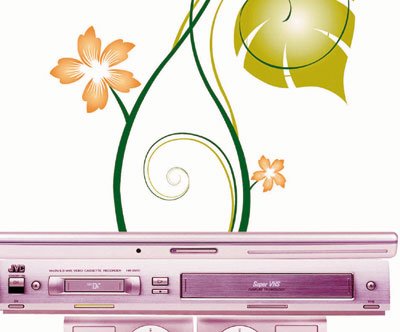Trash stat: More than 130 million phones enter the U.S. waste
stream every year, where they have the potential to leak mercury,
cadmium, arsenic and more into water streams.
Courtesy of McClatchy
Cell phones
Trash stat: More than 130 million phones enter the U.S. waste stream every year, where they have the potential to leak mercury, cadmium, arsenic and more into water streams. These compounds may also enter the air when municipalities burn the phones. Can you hear me now?
Recycling
– Best Buy and Office Depot stores offer free recycling kiosks near the front door for cell phones, batteries and chargers.
Charity
– Cellular companies have free, charitable drop-off or mail-back programs for recycling old phones. Motorola’s program, at www.racetorecycle.com, distributes the proceeds among participating K-12 schools. Nokia and LG also take in used phones, regardless of the manufacturer. Visit www.nokiausa.com/recycle or us.lge.com/recycle to download a postage-paid label to return the device.
n AT&T, Verizon and T-Mobile have programs where you can drop off your old wireless equipment at their stores to be refurbished for resale and reuse, with proceeds going to charity. Sprint’s program donates all proceeds to 4NetSafety children’s online safety group; go to www.sprint.com/recycle to see if your model is eligible to be exchanged for an account credit.
n The Wireless Foundation’s Call to Protect program collects working cell phones for distribution to victims of domestic violence. Learn more at wirelessfoundation.org.
Computers and peripherals
Trash stat: In the past 10 years, more than 500 million personal computers became obsolete. Older computer monitors use cathode ray tubes that contain two to four pounds of lead, and are even classified as hazardous waste in some states.
Recycling
– The manufacturer of your PC or laptop may offer a recycling or trade-in program. Dell offers free recycling for all of its products at any time, and also allows new customers to trade-in old non-Dell computers with purchase. Visit www.dell.com/recycle for more information, and check out a similar program by Hewlett-Packard at www.hp.com.
Charity
– The National Cristina Foundation works to provide newer, working computers and peripheral equipment to the disabled or economically disadvantaged. Go to www.cristina.org to determine if your PC is an accepted model. If so, Cristina will work to find an appropriate recipient for your computer in your area.
iPods and MP3 players
Waste stream: In April 2007, Apple announced the 100th million sale of its ubiquitous iPod, which first hit the market in 2001. iPods and other digital music players have spawned an entire industry of related accessories, from cases to speakers to car chargers – an eventual mother lode of trash.
Recycling
– Bring iPods, functioning or not, to any Apple store for recycling and receive a 10 percent discount on your next iPod purchase. Also, Staples stores have recycling bins for any type of MP3 player or hand-held electronic.
Charity
n The Susan G. Komen Breast Cancer Foundation works with flipswap.com to turn donated iPods into a cash contribution. Simply assess your iPod’s condition to find out the estimated cash value, then send it in to have that amount donated to the Komen Foundation. Visit www.cellphonetradeins.com (cell phones are accepted as well).
n Donating your working MP3 player to local nonprofits is music to needy ears. List your player on eBay with eBay Giving Works, and designate all or a percentage of the profits from its sale to charities. Go to givingworks.ebay.com.
For profit
– iPod has spawned more than 10 generations since its inception, and newer models like iPod Touch or the most recent iPod Nano have good resale value. On eBay, a used 30 gigabyte video-capable iPod can currently fetch about $150.
TVs, DVD players, stereos
Heavy facts: Analog televisions, VCRs, and bulky stereos – these retirees can contain the same harmful compounds as smaller gadgets, and then some (a 27-inch TV can contain up to eight pounds of lead).
Recycling
– Don’t leave these items curbside – dispose of them responsibly at your local trash and recycling centers.
To find an electronics recycler in your area, visit the My Green Electronics Web site (www.mygreenelectronics.org), sponsored by the Consumer Electronics Association. In addition to recyclers, the site also features a database of environmentally friendly gadgets organized by category.
Charity
– Find a new home for unwanted electronics by joining a local Freecycle e-mail group. Submit your free item to the group, and a daily e-mail to thousands of members tells what stuff is up for grabs. Go to www.freecycle.org and type in the name of your hometown and state to get started.
Toxic trash
Besides e-waste, plenty of other toxic household materials require special disposal. At earth911.org, you can enter the type of trash and your zip code to find places nearby that either recycle the material or dispose of it safely.
Hazardous household trash can include:
– Used motor oil, antifreeze, tires, car batteries
– Cleaners
– Fluorescent bulbs
– Asbestos
– Paint thinner
– Fertilizer, pesticides, fungicides
– Prescription and over-the-counter medications for people and animals
– Insecticides
– Flea repellents and shampoos













